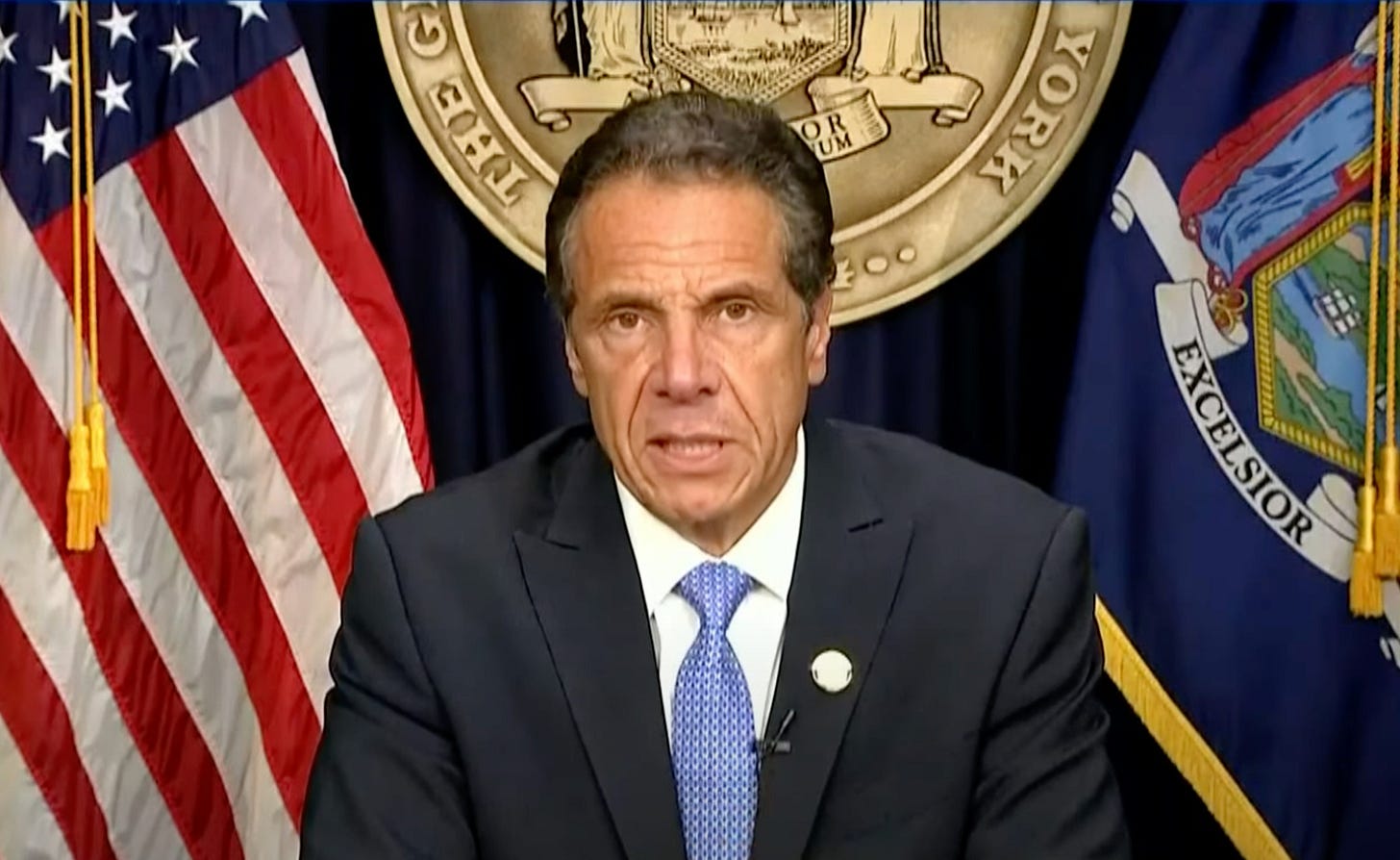Andrew Cuomo Was a Disgrace to the Very End
Good riddance to a terrible person.
Andrew Cuomo resigned from office in the same way that he occupied it: disgracefully.
Cuomo announced in a televised statement on Tuesday that he was stepping down as the governor of New York in the wake of the bombshell report from New York Attorney General Letitia James that documented Cuomo’s serial sexual harassment and emotional abuse of the women who worked for him. The move shocked just about everyone. Cuomo had given every signal that he intended to stay put, even as it became clear that the state legislature was bound to impeach him. He has been defiant ever since the wave of harassment allegations first landed earlier this year, insistent that he had done nothing wrong. He has never been one to sacrifice anything for anyone else.
Clearly, Cuomo decided that impeachment was not worth it. If he took his case to trial, his many misdeeds—not only around his sexual misconduct but also his coverup of COVID deaths and his shady COVID book deal—would have been given an unflattering airing, and he would still lose in the end. Better to try and head all of that off at the pass.
Still, he resigned in the only way Andrew Cuomo knows how: a tawdry orgy of deceit, egomania, and mawkish self-pity that painted a picture totally at odds with the disgusting, grubby tyrant that has actually ruled over New York for the past 11 years.
Cuomo’s swan song was preceded by a lengthy presentation from his personal attorney, Rita Glavin, who attempted to comprehensively discredit the James report and portray Cuomo’s accusers as alternately scheming, hysterical, or simply misinformed about the governor’s true intentions. At times, the presentation veered into farce.
Then it was time for the main event. Before resigning, Cuomo restated Glavin’s excuses in his own words. He was simply an old man who hadn’t caught up with the new ways that people are supposed to behave, he whined. He wanted to learn more about how to act these days, but politics was so destructive that he couldn’t, he complained. His accusers—the ones who weren’t simply lying about him—had tragically failed to understand the caring place he was coming from. He had just been too “familiar” with people, but there was nothing untoward about what he had done.
This conniving, self-serving monologue was, of course, based on lies. We know better. The James report is clear, both about the extent of Cuomo’s predatory behavior and about the psychological terror he and his closest aides inflicted on the people who worked for him. But we knew that even before the James report. Cuomo has always been this way. He has always reveled in his own power, has always been a small and vindictive person, has always delighted in destroying the people who get in his way. There is no other side to the man.
Cuomo then swerved into his resignation. One reason it was so surprising is because he and his lawyer had collectively spent about an hour on the attack, running through the familiar playbook that serial harassers crib from when trying to save their skins. But Cuomo had decided to be noble. He was doing what was best for the state. (For once, everyone could agree.)
It got somehow worse. Cuomo invoked his three daughters. He said there was institutionalized sexism, that this was still a “man’s world,” as if his personal conduct had not contributed so much to that state of affairs. He ran through a list of the achievements he claimed to have champion during his time in office. And then, in an especially repugnant move, Cuomo went on a maudlin riff about COVID, in a blatant attempt to recapture the early days of the pandemic, when he was the most popular politician in the world, when the Cuomosexuals were drooling over him, when, even as he was touching his staffers in ways that filled them with dread and sent their lives spinning, he himself was untouchable.
For Cuomo to use COVID—a pandemic that he mismanaged, exploited, covered up, profited off of, and lied about in ways that directly led to the deaths of thousands and thousands of people who did not need to die—to remind New Yorkers of the good times we supposedly had says everything you need to know about the man.
He has learned nothing from his recent ordeals. He is who he always was: a bad person, a corrupt politician, a direct impediment to true progress, an embarrassment. He leaves nothing decent behind. The achievements he rattled off were made more difficult to achieve by his presence. The list of good things that might have happened in New York if he hadn’t been in office are too numerous to count. It is a just and righteous thing that he is leaving, and the whole crooked establishment that propped him up, excused his crimes, let him run riot, and collaborated with him needs to go too.




